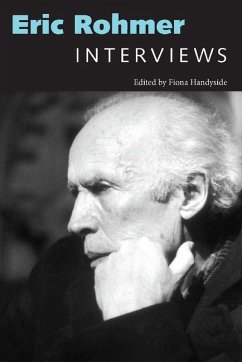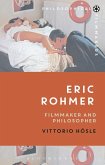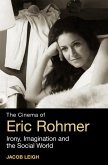The 1969 film Ma Nuit chez Maud catapulted its shy academic film director Eric Rohmer (1920-2010) into the limelight, selling over a million tickets in France and earning a nomination for an Academy Award. Ma Nuit chez Maud remains his most famous film, the highlight of an impressive range of films examining the sexual, romantic, and artistic mores of contemporary France, the temptations of desire, the small joys of everyday life, and sometimes, the vicissitudes of history and politics. Yet Rohmer was almost fifty years old when Maud was released and had already had a career as the editor of Cahiers du Cinéma, a position he lost in a political takeover in 1963. The interviews in this book offer a range of insights into the theoretical, critical, and practical circumstances of Rohmer's remarkably coherent body of films, but also allow Rohmer to act as his own critic, providing us with an array of readings concerning his interest in setting, season, color, and narrative.
Alongside the application of a theoretical rigor to his own films, Rohmer's interviews also discuss directors as varied as Godard, Carné, Renoir, and Hitchcock, and the relations of film to painting, architecture, and music. This book reproduces little-known interviews, such as a debate Rohmer undertakes with Women and Film concerning feminism, alongside detailed discussions from Cahiers and Positif, many produced in English here for the first time.
Alongside the application of a theoretical rigor to his own films, Rohmer's interviews also discuss directors as varied as Godard, Carné, Renoir, and Hitchcock, and the relations of film to painting, architecture, and music. This book reproduces little-known interviews, such as a debate Rohmer undertakes with Women and Film concerning feminism, alongside detailed discussions from Cahiers and Positif, many produced in English here for the first time.
Dieser Download kann aus rechtlichen Gründen nur mit Rechnungsadresse in A, D ausgeliefert werden.









